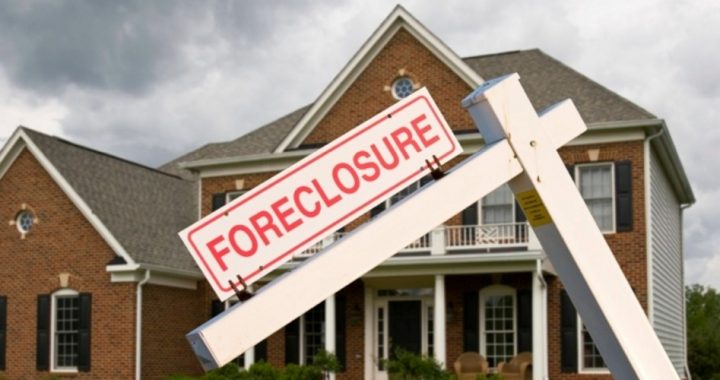
Foreclosures of homes are increasing, July economic reports reveal. Homes are the most important asset that ordinary Americans possess, and the value of that asset was long presumed by middle class Americans to be one which would steadily increase over time, punctuated occasionally and in some regions with soft markets and in other regions with quicker growth. Over the last four years, however, the value of the American home has been stagnant, even as the cost of living has increased.
Even that masks how bad things have gotten. Homeowners with mortgages exceeding the actual value of the home were rare in the last six decades. Federal programs that pushed lenders to give mortgages to home buyers who did not meet ordinary standards of creditworthiness changed that. Now millions of Americans are in default on mortgages which are greater than the fair market value of the property secured by the mortgage.
The operation of the law of supply and demand means that as more and more homes drop in value or go into repossession by the lender, who must salvage what he can out of the home, the average sale price of homes in general stays depressed. Most housing markets have substantial numbers of homes which are owned by banks and mortgage companies. In many cases, these financer-owned homes are the result of a voluntary give-back by home owners who, as a consequence of deeding the home back to the lender, are freed from any deficiency judgment after a foreclosure action. This makes financial sense for both home owner and lender: The bank avoids the delay caused by legal foreclosure proceedings, and the borrower exits his home without owing anything.
The latest economic reports, however, suggest that the housing crisis is growing worse. The number of foreclosure proceedings brought by lenders against home owners grew in July by six percent. That is the third straight month in which the number of foreclosures has risen.
California has been hardest hit, with a foreclosure rate more than twice the national average. As California cities go into bankruptcy, this reduction in the property tax base for California governments will cause one of the safest types of taxes for the Golden State, taxes on real property, to worsen the crisis in Sacramento. Foreclosures also rose by 20 percent or more in South Carolina, Connecticut, Indiana and Pennsylvania. Also hard-hit by the rise in foreclosures have been New Jersey, Ohio, Florida, and Illinois.
In Orlando, the number of foreclosures rose for the seventh straight month. Foreclosures statewide in Florida rose 14 percent in July. Foreclosures rose even higher in Massachusetts, jumping 19 percent in July. Once a lending institution begins foreclosure, it is unlikely to agree to a give-back of the home, as Daren Blomquist, Vice President of RealtyTrac, notes:
Lenders are much less likely now than they were even a year ago or two years ago to repossess a property after they’ve started the foreclosure process. In the short term, this means that there’s gonna be more foreclosures for sale on the market, which maybe is good news for some folks, but probably bad news for home prices, because these foreclosures typically sell at a discounted price.
It’s bad news for Massachusetts and Boston. Whereas you might have thought the foreclosure situation was getting better last year because of the lower numbers, it really wasn’t a reflection of substantial market improvement. These increases indicate there is going to be more supply, and that, in turn, could destabilize any home-price appreciation that has occurred during the reprieve period.
The rise in foreclosures nationally means that almost everybody, except perhaps the lawyers who handle foreclosure proceedings and bankruptcy cases, is losing. Banks which foreclose will get deficiency judgments, but the former homeowners clearly have no money to pay that judgment. Homeowners will, if pushed, be forced into bankruptcy. The lender has the expense of litigation, a residence which for months cannot even be rented, and another house in its portfolio which has reduced value in the current market. Real estate agents and home builders of course, are hit as well.
Is there light at the end of the tunnel? Perhaps, but it is increasingly hard to see that light. Homes have historically been a bedrock of wealth for middle class Americans. Now that bedrock has turned into shifting sand.



